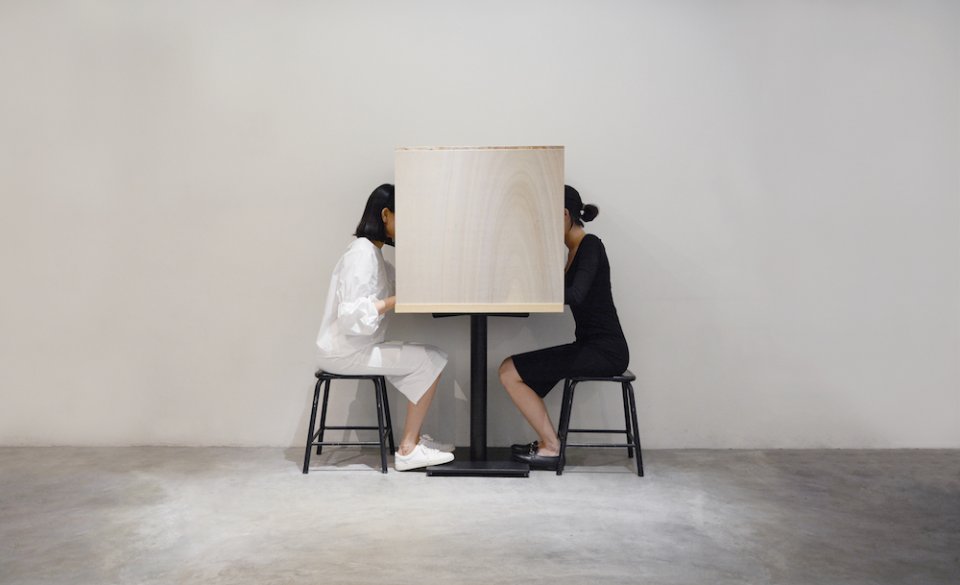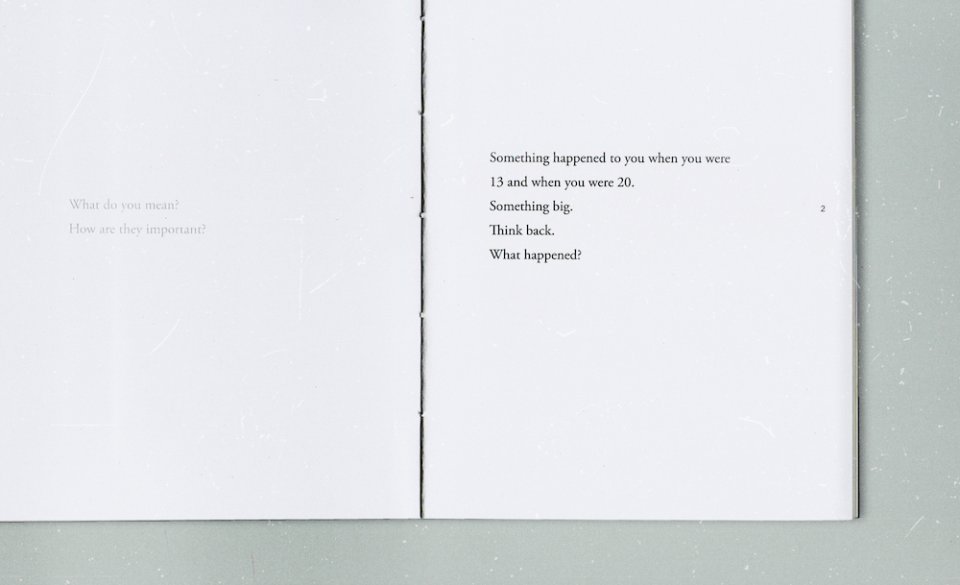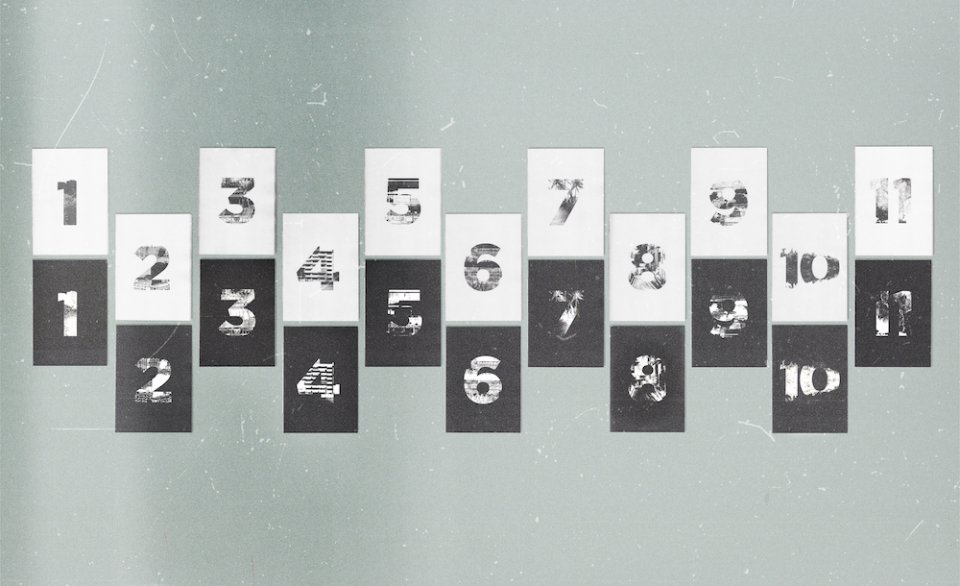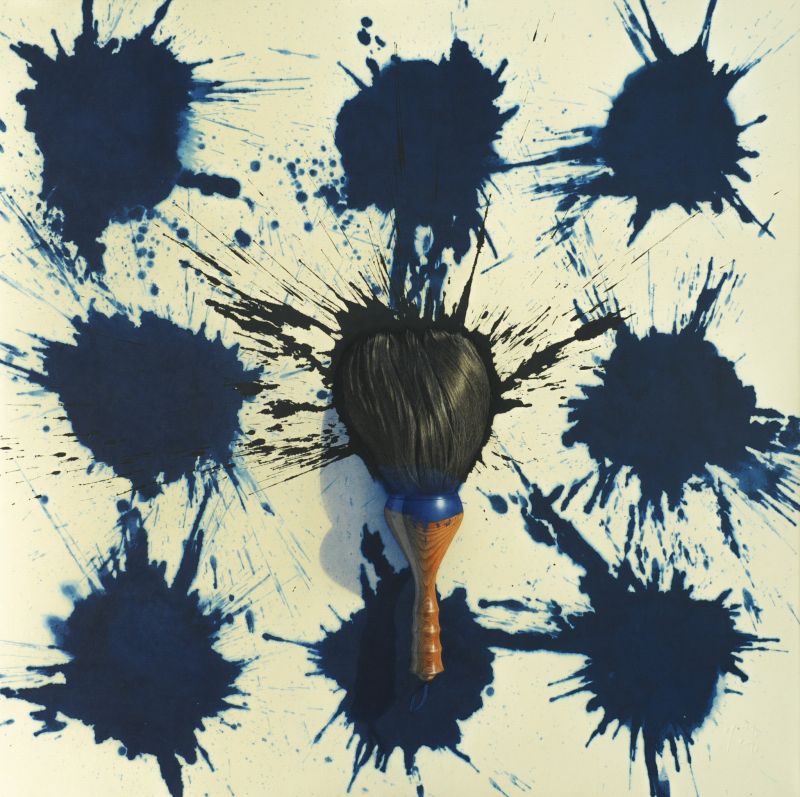You might recognise Dawn Ng for one particularly seminal work—a large, inflatable bunny that travelled across heartlands in 2011 to prove a point about familiar landscapes being taken for granted. Walter eventually made its way into the Singapore Art Museum collection; while the 37-year-old multimedia artist with a penchant for installations made a name for herself in the local art scene.
Her latest show is 11, an immersive performance piece at Telok Ayer Arts Club (TAAC) that comes down entirely to audience participation. Each of the six sessions sits 22 people in a circle of pairs; once the show begins, members read from scripts penned by Ng herself, carrying out 11 predetermined conversations in relatively sound-proof booths.

Like all her other works, this one explores time, space, object, and the relationship people have with the three things. But this idea, said Ng, was a spin-off from her last solo show—Perfect Stranger, a year-long project wherein she documented the questions her psychologist asked her everyday for a year. “What I think surprised us both at the end of the work was that you could find yourself in someone you did not know; and (how) there was an acute honesty found in a conversation you can have with a stranger,” she said.
11 was born out of that same raw honesty, but tailored specifically to respond to the space at TAAC. It plays off the physical space of a bar—“where at least for a moment in time lives cross, stories are exchanged, and time stands still”, according to Ng. And like with an actual bar, you’re allowed a little liquid courage to get into the mood for opening up; participants can choose from a Sweet or Salty cocktail whipped up right before the show starts.
When we enter the space, it’s expectedly silent. The usual restaurant setup has been rejigged to form a circle of custom-made sound booths—or “confession booths” as Ng calls them. Someone directs us to our seats in hushed tones, with friends being strategically separated. At each booth, there’s a white script, black script and a single finger-wetter for the chronically dry-palmed; your peripheral view is limited, and all you’re meant to see is the person sitting across you.
We’re told to place our hands onto the other person’s—black script folks with palms facing up, white scripts palms down. Sheepish half-smiles exchanged, Ng reads in her soft lilting voice the rules of the show. Chimes will guide the flow of movement for the entire session: one chime to unclasp hands and begin reading (you’re meant to re-hold hands once you’re done); two, after the entire room has returned to silence, to move down a seat; 11 when you’ve completed a full lap around the room and read all 11 scripts.
It’s no doubt awkward the first time you start reading. There’s the unnerving sound of your own voice inside the little cocoon—but also 21 others bubbling around you. Something about the acoustics dramatises the cacophonous swell; disconcerting at first, it settles into a comfortable buzz, sort of like exaggerated background noise sound engineers painstakingly create for movies. Slowly, you work yourself into a rhythm of touching unfamiliar hands and playing new roles, moving like clockwork around the room.

The scripts themselves hold little worlds of their own. Pulled from Ng’s own real-life conversations and experiences, they range from cheeky banter between ghosts stuck in the living world, to heartfelt exchanges with loved ones, to hashtag #relatable conversations we forget having with taxi drivers on the daily. Each reading is a new opportunity to meet with a different stranger in the group, live out a new persona, and forge a possible new connection. In that way, it perhaps does mirror the speed-dating premise it was founded upon.
Death rears its head in many of the scripts, though not intentionally. Ng figures it’s a by-product of working with themes of nostalgia and memory. “The stories are all about coming and going, and startings and endings,” she said. “Death just seems like that grand finale, where everything else—saying goodbye to someone—is all just practice leading up to that final big goodbye.”
Likewise, every connection, no matter how genuine, is fleeting in 11. But Ng’s purpose was never to truly matchmake. Rather, all she hopes of her audience is to simply feel and lose themselves in the moment. “It doesn’t matter what you feel, it’s just to be able to emote and empathise in the given moment,” she said.
She imagines that even friends and partners would find something novel in the experience. Ng, who previously trialed the show with friends and family, said she enjoyed playing it with her husband. “It’s fun to play someone else in a relationship you know so well.”
Of all the scripts, her personal favourite is No. 11, titled The Great Machine. Existing between a parent and a gatekeeper of the next world, the simple dialogue speaks on leaving one’s child behind when moving on to the afterlife, and is drawn from Ng’s own motherly feelings about her two-year-old daughter.
Naturally, a show like this lends itself to a lot of external factors—the levels of enthusiasm from different parties, a person’s penchant for eye contact. But Ng is again unflustered. For her the work exists in its complete spontaneity; little moments like people reading aloud ending at different times are “a sort of unscripted but really beautiful thing that evolves through the process”.
“On my end, I have put everything into the space, timing, settings, structure, lights, sound, colour, ritual, characters, stories, and words,” she said. “This in itself is an installation. To absorb, to process and to feel—that is the age-old role of the audience who is, in this case, simply pulled even closer to that connection point.”
By the time we reach our final script, it is a poem—the first and only after a series of conversational scripts. The rhyming couplets move fast and urgently, and you’re meant to whisper them to your partner. In a duet of sorts you chronicle the rise, fall and end of two lovers’ relationship.
“I feel like most people who are in love, generally they all become slight poets in that moment of really falling in love,” explained Ng, who graduated with a double major in English and Fine Art. “We all follow that same story arc—of falling very deeply into something, realising that it doesn’t quite work, and then hurting each other at the end; and just trying to reach a form of reconciliation or a good parting. It just felt like a suitable medium for something that was such a classical tale.”
It seems almost serendipitous then that it’s to be our last script.

Forty minutes and 11 chimes later, we leave the room, far more relaxed than when we entered (even with a drink). There’s an unspoken newfound camaraderie within the group—we’ve met at least half the others, lived through the same 11 scripts, and glimpsed an intimate corner of Ng’s psyche. Looking around, you notice a new post-show confidence that fuels real conversations.
Chances are we won’t recognise each other the next time we meet in the streets. But there will always be this one evening in our shared history that connects us all, 22 strangers who decided to take a chance on a new art show; and in today’s disconnected world, would that really be such a bad thing?
11 is still open for two shows on Jan 26, 5pm and 8pm at Telok Ayer Arts Club. Tickets are $48 via email. More information available here.





